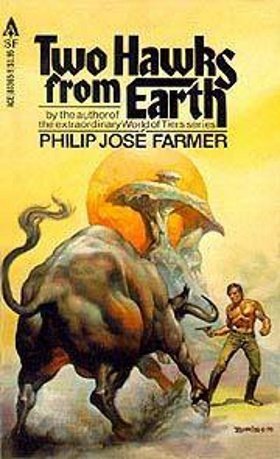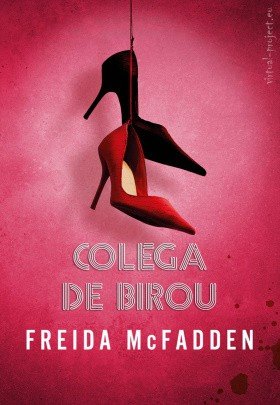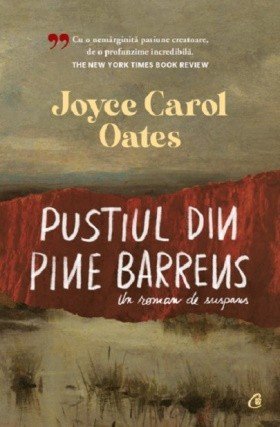“WHY DID YOU HAVE TO yell at him?”
Charles rests his rear end against the countertop’s edge, arms folded defensively tight against his chest. His gaze pierces the old hardwood kitchen floor, searching for rationale in age-darkened cracks, hoping to find answers among the punctured black eyes of ancient nail heads.
I didn’t really yell.
I’ve been working too hard.
He surprised me, that’s all.
“I don’t know,” he says, settling for honesty. He shakes his head, lifts his eyes to meet the stern, beautiful face of his wife. “I don’t know,” he repeats, feeling stupid, but grateful for this feeling of humiliation, mistaking it for conscience.
Margaret and Charles have been together nearly a decade. What was seeded in Southern California, amidst her failed acting career and his nighttime profession as an uninspired bartender, eventually took root in the Northeast, at the house his father left them, where their child was born, where their respective, hard-earned professions as a public relations director for a local television station (her) and the manager of a semi-exclusive dining club (him) pumped oxygen into the shrunken lungs of their lives, and together—all of them, together—breathed deeply, as if for the first time.
“He’s just a little boy, a funny little boy who wants to run and yell and spin and dance ….” She stops, wanting to go on, to describe all the things her boy does. “And sometimes he makes a mistake.”
Charles nods and nods. “I know. I’m sorry. I’m gonna… Look, baby, I need to go finish the leaves. When I do ….” He rubs at his face, the scratch of growth on his cheeks and chin, feels older than his thirty-some years.
“I thought you finished the leaves yesterday.”
“I … yeah, I raked ’em honey, and I dragged them to the clearing. But I gotta burn the pile today. Too damn windy yesterday, that smoke ….”
“You men and your fires, I swear. Just throw them out with the trash. It’s what the neighbors do.”
Charles debates explaining how long and arduous a task it would be to bag their autumn refuse every season. But he lets it alone, something he’s grown quite good at: leaving arguments alone. Letting them dissolve and flow away like a rotten smell, a wisp of hot smoke. Charles can’t tell his wife that, when he was as a kid, he’d watch his dad rake a burn for hours, and how, when it was good and controlled, the two of them would sit at a distance and watch the pile smoke and whisper and glow. He can’t tell her how close he felt to his father in those times, or how the smell of burning leaves—what his dad called autumn sugar, because there was a sweetness underneath the sharp stench of soot—brought an aliveness to the thick autumn air, a physical pulse to the heavy column of black smoke; how that smoke swarmed with hot dancing sparks that made him think of his boys’ encyclopedia of outer space, filled with pictures of stars born deep within a galactic cloud within a faraway, chaotic nebula. The fire didn’t smell of life—not exactly—but the boy Charles once was thought it carried the heady aroma of creation, as if he and his father were sitting together, shoulder-to-shoulder in the grass, at the start of all things, watching the universe burn into being.
“Anyway, I’m gonna finish,” he says, feeling sullen, distant from all things that mattered. From his father, from that inspired little boy. “Then I’ll find Sam and we’ll have a talk. I’m sure he’s playing by the creek.” He turns away from her, focuses his stare out the thin glass of the windows—the original glass, the original frames, he thinks proudly, without reason. “I’ll go find him. We’ll have a chat about, hell, about ….”
“Not breaking your shit?” his wife says.
But he knows, without turning, that she’s smiling, one eyebrow playfully arched. Happy that her husband is soft, that he’s pliable. That he’s the kind of father who talks to his son after a fight, after a misunderstanding. A modern father who believes in hugs rather than the belt. To make him feel ….
“Yeah,” he says, and reaches his hand behind him where she can clasp it with her own, her fingers safe and warm. “About not breaking my shit.”
I’M SORRY, DADDY.
The thought floats out of his head and up, up into the leafless branches high above, where it tangles like drifting spider silk, wraps and sticks.
Sam is unsure of himself. Unsure of what to do. Find Tucker? Go back inside the house? Find his dad and ….
Sorry. Say you’re sorry.
He shakes his head. He’s afraid. Confused. He hated the yelling; how mad his father was. But what he hated most was the look in his daddy’s eyes.
Loveless. Empty. Hateful.
Sam cried when he saw that look—had screamed at the pain of it as if burned—hardly hearing the words his father bellowed as he stood, lifting the wet computer, pushing Sam away, pushing him hard …
and then ….
It was the look that undid him, that brought the tears, made him run run run from the room, screaming and crying and then pushing through the screen door and bursting outside, into the massive backyard. Tucker had followed at a sprint, excited, barking, not understanding. Thinking it was a game, maybe. A game of running. Of chasing. Of hiding.
And Sam, being a boy with a young boy’s elastic mind and volatile emotions, soon forgot about the laptop, about his dad’s angry words, that hateful glare, and instead began to run after Tucker. Laughing. Screaming with joy as the young Spaniel turned and lunged at his feet, snarling playfully, the dog’s body shivering with the excitement of play. Of freedom. Love unfiltered.
But then Tucker had stopped, cocked his head, as if he’d heard something Sam could not. Then the dog had run away, run into the trees, toward the little creek that passed through the woods, where Sam and his mom once built a dam, like beavers. Afterward they’d knocked it down, laughing while ankle-deep, and Sam remembered how very cold the water was on his bare feet and the feeling of life the river gave him as the water flowed past, and he imagined it was also laughing; rippling reflections dancing in the dazzling sunlight. He’d become lightheaded and then they released the stacked wood and watched it leap into the stream’s eager flow … rolling, spinning, flying away, away.
And now, beneath the tall trees, their limbs gold-tinged by a warped halo of dying sun—and with the sly one-eyed moon peeking through overhead— Sam weighs his options, surrounded by the scatter, the leftover remnants of shattered leaves.
CHARLES STEPS INTO THE COOL dusk. He wears a Carhart jacket the color of old canvas, stained and roughened from a decade of service, and a pair of broken, bone-white leather gloves, the webbed grooves between each finger bruised black by use. A blue ballcap is pulled low over his forehead, work boots laced over denim cuffs. He walks doggedly toward the shed, which won’t last three more winters, already sagging and rotted at the wide-planked seams (last summer’s whitewash doing little to improve its position as a long-term resident of their homestead).
As Charles trudges toward the old shed, he replays the events of that morning in his mind.
Having already wasted a good portion of his morning day working up a budget for the owners of Mackenzie Hall, the spreadsheet filled with best guesses for the upcoming quarter, he’d been mentally buried in numbers when Sam appeared from nowhere, yelling an incoherent cry of joyous ferocity and jumping into his lap, in doing so bumping the legs of the table (and scaring the shit out of his father). Charles’s hand had jerked, knocking over a glass, and spilling a pint of light beer over the keys of his MacBook, where the suds fizzled between letters and numbers like acid on flesh.
“Sam! God damn it!” he’d screamed, leaping to his feet, grabbing the laptop from the table and turning it over, shaking the beer out of whatever circuitry lay buried beneath the plastic surface, away from whatever made the thing work. The beer pooled on the smooth wood of the mahogany table before gently pointing its way—like a budding stream—toward the edge, where it dribbled over onto Margaret’s antique Oriental rug (the Great Splurge from a farmer’s market auction three years prior—the edges a floral border encased in beige, the rectangular middle red and ripe as a human heart centered by an ornate mandala, which the seller told them represented universal consciousness).
What his wife doesn’t know—what she can never know—is that Charles (instinctively and without malice or forethought) had struck out at his son with the back of one beer-drenched hand. His knuckles smacked the child’s soft temple, connected with enough force to send the boy face-down to the ground. Sam flipped over and looked up at his father, his only father, one palm pressed to the point of attack, blue eyes wide with horror, pain. Betrayal.
Charles, stupidly holding the dripping laptop, went pale. “Sam,” he said.
But then Sam had jumped to his feet and ran, ran howling through the hollow-roomed old Colonial like a banshee through the stone corridors of a Gothic castle, a specter made of stomping feet and cries of pain, chest-tearing bellows of impossible, unforgivable loss.
Now, after the passing of a few healing hours, he must mend the broken fence, the link of trust between him and his boy. But first he must finish the day’s work. He must…

























